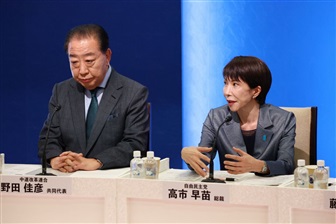Around the web
12 Feb 200911 Feb 200910 Feb 2009
Ailing Japanese chipmaker Elpida Memory has said that it was in alliance talks with three Taiwanese firms but denied a report that they had reached an accord on merging their operations. The Nikkei economic daily reported Wednesday that Elpida had reached a basic agreement with the Taiwanese companies to integrate in a bid to survive amid falling demand for semiconductors.
AFP
Computer World Australia
For the fourth quarter of fiscal 2009, revenues were US$481.1 million compared to US$1.2 billion for the fourth quarter of fiscal 2008, a decrease of 60%. For the twelve months ended January 25, 2009, revenues were US$3.4 billion compared to US$4.1 billion for the twelve months ended January 27, 2008, a decrease of 16%.
Company release
Fierce Wireless
German technology company Infineon Technologies AG has said it would expand a Hungarian production facility which makes components for solar and wind power systems, as a result of strong demand for the products.
International Herald Tribune
Times of India
LEDs Magazine
New York Times
Elpida Memory executives met Taiwan officials in Taipei today (Feb 11) to discuss integration of the memory-chip industry, Chen Chao-yih, head of Taiwan's industrial development bureau, said in a phone interview.
Bloomberg
Advanced Micro Devices has said that it failed to get enough shareholders at its special meeting in order to vote for the creation of The Foundry Company (TFC) and spin off manufacturing capacities for the company. The company will now delay the vote by more than a week to get a quorum.
x-bit Labs
Outbound shipments plunged for the sixth straight month by a record 44.1% on year last month, due to slumping demand as well as fewer working days, the Ministry of Finance said yesterday.
Taipei Times
SanDisk is disclosing at a San Francisco technology conference Tuesday that it will begin mass production of memory chips that will allow consumers to store up to 64GB of data on tiny flash cards. The company's X4 technology will pack four bits of data into each memory cell. To date, flash memory chipmakers typically stored one bit or two bits per cell.
CNET
Qimonda AG, the German chipmaker that has filed for insolvency protection, has begun reducing production at its plant in Dresden to about one quarter of capacity, cutting the amount of silicon wafers it processes.
Bloomberg
A Qimonda spokesman, Ralph Heinrich, said in a telephone interview that the division is in talks with potential investors in Asia. Wirtschaftswoche magazine reported that CSMC Technologies, a unit of China Resources Microelectronics, is interested in buying Munich-based Qimonda and has been negotiating with the company for months, citing an unidentified person in the industry.
Bloomberg
Toshiba has developed a higher capacity version of its FeRAM (Ferroelectric RAM) memory that can send and receive data at eight times the speed of its previously detailed prototype.
PC World
Struggling German chip maker Infineon is considering a partnership in Europe or Asia even though it can survive alone, its chairman told a newspaper, but analysts said chances for an alliance were slim.
Reuters
Computer World Australia
Korean Times (USE The Korea Times)
Electronista
593/1505 pages









